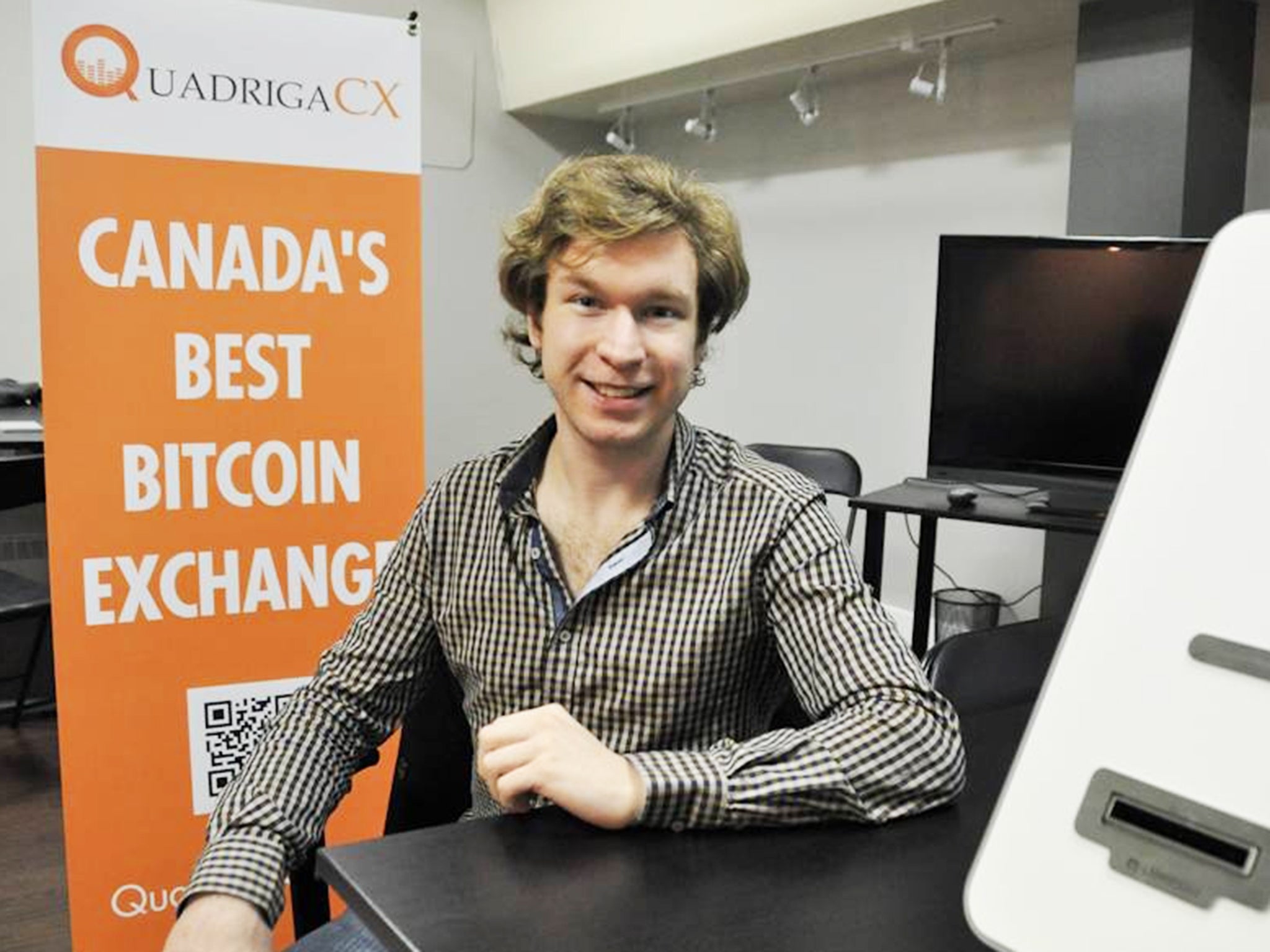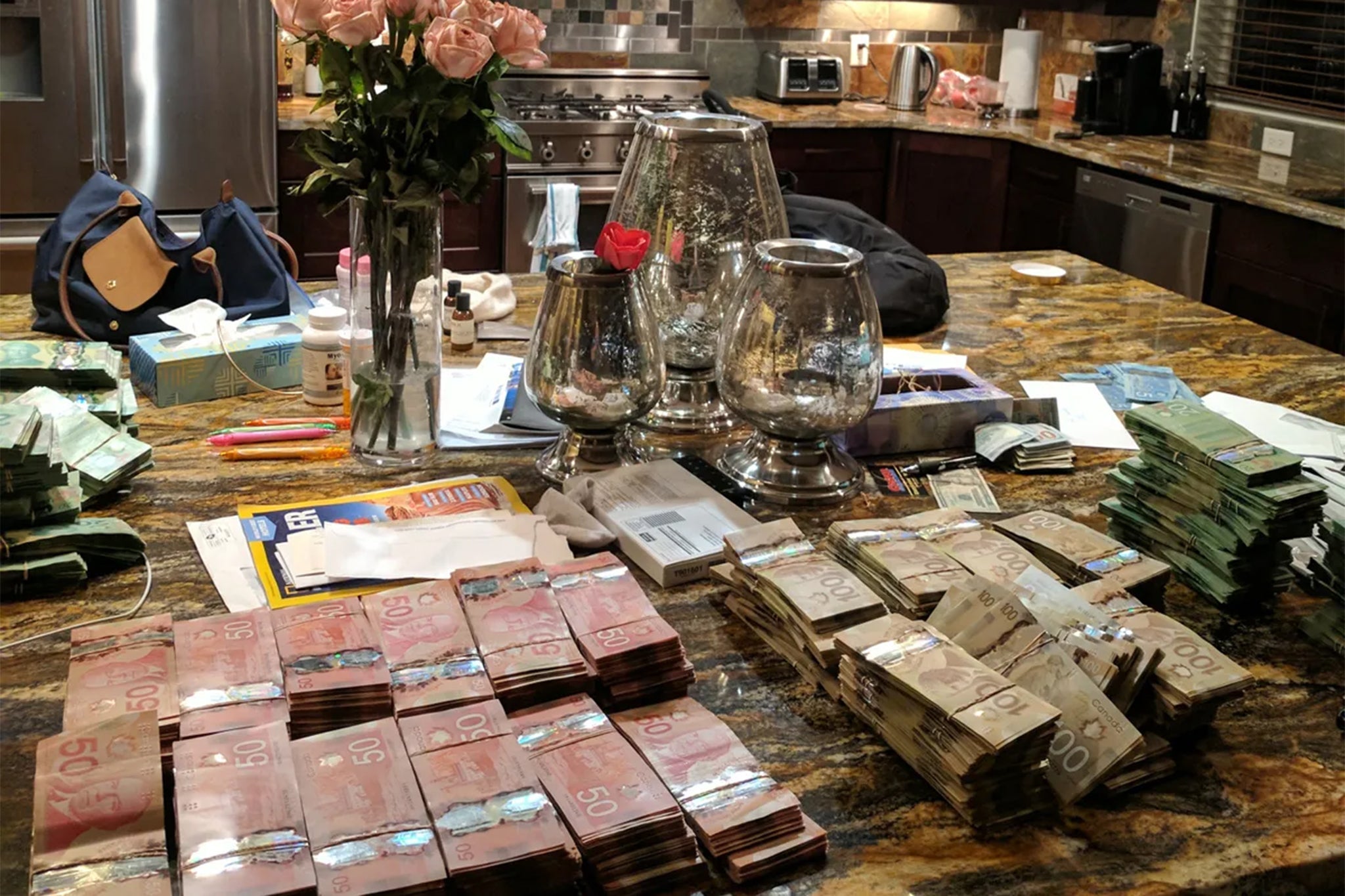A lost password, a sudden death and $180M in missing crypto: The curious saga of Gerald Cotten
Investors are still hunting for millions in vanished cryptocurrencies, writes Josh Marcus


Gerald Cotten was 15 when he ran his first documented get-rich-quick scheme. The teen, a bright computer enthusiast from Belleville, Ontario, ran the operation on an online forum called TalkGold, and promised his investors inconceivable returns of up to 150 per cent in two days. He was able to keep the venture, called S&S Investments, going for three months, before it folded and investors’ money was gone.
Fifteen years later, Mr Cotten, known as Gerry, would be accused of swindling people online of a much bigger prize. He would grow up to be a cryptocurrency entrepreneur and run Canada’s largest crypto exchange, QuadrigaCX, before dying under bizarre circumstances in 2018, leaving investors looking for a missing $180 million Canadian dollars.
Mr Cotten’s story is now the subject of the documentary Dead Man’s Switch: A Crypto Mystery, which streams on Discovery+, and in the new memoir of wife Jennifer Robertson, Bitcoin Widow: Love, Betrayal and the Missing Millions.
“It was one of the only games in town [for crypto enthusiasts],” Sheona McDonald, who directed the film, told The New York Post. “You transferred them $1,000 and you could see the crypto in your account. I think there were a couple years when it ran legitimately … I don’t think Gerry could have imagined a future with money pouring in the way it eventually did.”
But pour in it did. The firm launched in 2014 amid a spectacular rise in the price of cryptocurrencies like Bitcoin, and was handling $1 billion in trades by 2017.
Mr Cotten, 30 at the time of his death, seemed to be living the dream life of a financial titan. He and his wife, Jennifer Robertson, jetted all over the world on private planes, visiting chic locales in Paris, Hawaii, and Morocco. The crypto entrepreneur bought increasingly lavish purchases: a $600,000 yacht, a high-end Lexus, 17 homes in Canada, a plane. Like many in the industry, he framed his enterprise not merely as a financial tool, but a radical societal change, touting the crypto gospel in podcast appearances and videos on YouTube.
“It essentially removes the need for a central authority. Then you get rid of the fees. You get rid of a lot of the regulations,” he said on a podcast in 2014. “It’s pretty much money by people for people.”

Things began to sour, however, in 2018, when the price of Bitcoin collapsed. Investors tried to pull their money from Quadriga, but sometimes faced month-long delays. Like other crypto-exchanges, Quadriga kept its funds in so-called “cold wallets”, digital storage devices not connected to the internet, which are safe from hacking. The only catch: only Gerry knew the passwords to the company’s crypto-vaults.
“Using a reputable custodian to hold the private keys outside the company is perhaps the best option to ensure these codes are not lost,” Erik Wilgenhof Plante, the former CCO of the exchange BeQuant, told The Independent at the time. “There is a clear lesson here that having a single person owning this information creates a huge vulnerability.”
There were other problems around that time. A computer issue wiped $14 million of Ethereum off the exchange. A Canadian bank froze another $21 million of funds.
In December of 2018, the jet-setting crypto couple headed to India for their honeymoon, where Mr Cotten died of complications from Crohn’s disease, 12 days after modifying his will. His body was embalmed and sent back to Canada for a closed-casket funeral.
The public didn’t learn about the death for another 36 days, until January 2019. That same month, Quadriga filed for creditor protection, and scores of angry investors began furiously questioning where their money went, even though only Mr Cotten knew the keys to the company’s crypto vault and never set up a “dead man’s trigger” to send them elsewhere in case he was incapacitated.
“I ended up losing my life savings — I lost $400,000,” Tong Zou, a tech worker quoted in the film, says. “I took out three loans from the bank and put it all into crypto. I put myself into a deep hole and the only way to dig out of it was to sell my house.”
Given the intrigue, some went so far as to question whether Mr Cotten had really died and demanded his body be exhumed. (His wife says he is in fact dead and witnessed his funeral).
In her memoir, Ms Robertson denies she’s part of an elaborate plot to fake her husband’s death, adding that speculation has led to death threats from stalkers demanding she returns the missing millions.
The death, and the resulting collapse of Quadriga, set off a score of government and citizen investigations into how so much digital currency could be spirited away.
"At that point, we were desperate to recover funds and we were also convinced that a scam was underway," said QCX-INT, an individual who uncovered online documentation of Mr Cotten’s history of fraudulent behaviour, speaking anonymously to the CBC this year. "It did become an obsession.”
The tech-savvy individual traced domain names, links, and trades on the blockchain, discovering a lengthy track-record of schemes, from Mr Cotten’s early days on TalkGold, to his association with a business partner named Michael Patryn. Mr Patryn pled guilty in 2005 to working in an identity fraud ring, and did business under a company called Midas Gold as an intermediary with Liberty Reserve, a Costa Rican digital currency firm busted as one of the largest money laundering operations in history. In court filings, it was revealed that Mr Cotten’s email was listed as Midas Gold’s contact. (Neither men were charged in connection with Liberty Reserve).
Two years after Liberty Reserve was taken down, the pair launched Quadriga, though Mr Patryn left the company in 2016 over a dispute on whether to list the company publicly and claims no involvement in the resulting schemes.
Following Quadriga’s implosion in 2019, it was investigated by the Ontario Securities Commission, which concluded that, "what happened at Quadriga was an old-fashioned fraud wrapped in modern technology”.
Investigations into the firm revealed that Mr Cotten made numerous fake accounts on Quadriga to influence trades on the platform, at one time being involved personally in 87 per cent of transactions. But the mingling didn’t end there: the crypto kingpin also allegedly mixed client money with his own, according to investigators, funding the lavish lifestyle he became known for.
His wife has said she was "upset and disappointed" to learn about the extent of the fraud at her husband’s company, writing in a 2019 statement, she wasn’t aware or involved in “Gerry’s trading activities, nor his appropriation of customer funds." She has also said she has no idea what the passwords are to access sequestered customer funds, and that it wasn’t written down anywhere.
Though some don’t believe Mr Cotten is really gone, the money from Quadriga is. So far, only about $46 million has been recovered.
